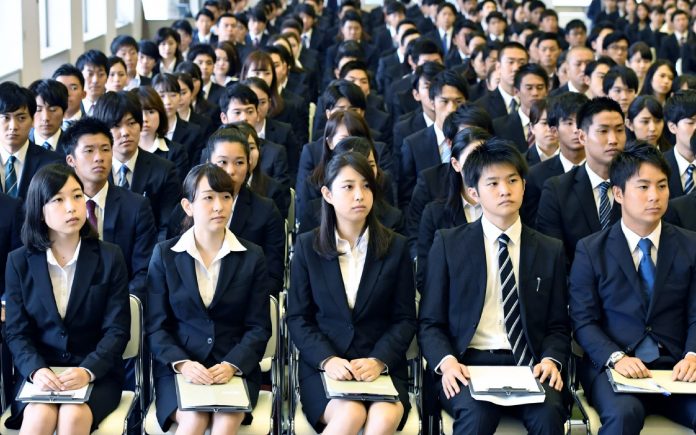With increasingly tense foreign trade relations and a distressing downturn in the global economy, one would not expect there to be a lot of jobs to go round. However, the Japanese Cabinet Office has released a white paper indicating that 2019 will be a year of increased new graduate hires.
According to Nippon, the Cabinet Office’s Annual Report on the Japanese Economy and Public Finance 2019 presents highly suggestive data that reveals 33.3 per cent of companies in the agency’s survey have already introduced hiring systems that are very likely to grant fresh graduates a good opportunity at landing a job through year-round hiring.
Traditionally, Japanese companies would often hire new graduates during the spring season. However, the past few years have seen a shift towards year-round hiring systems, providing greater opportunities for fresh graduates to pursue careers.
The trend came along as a necessity, as many companies began finding themselves in need of upskilling and developing new and innovative breakthrough products. New graduates were seen as a source of innovative and daring new ideas that could inject the desired creativity into company projects, thus potentially hastening the manufacturing of high-end goods.
Japan’s expectations of a new and improved hiring system comes hot on the heels amid the nation’s trade dispute with South Korea. The dispute has only worsened recently and is expected to keep escalating unless some sort of accord is reached.
Economists forecasted that the Japan-South Korea trade dispute could lead to sufferings not just for the economies of the two countries but also for nations trading with the two sides.
In June, data revealed that Japanese exports weakened to 6.7 per cent compared to 2018 figures. The numbers account for a three-year low that could be just the beginning of a downtrend in the country’s economy.
Despite this, some aspects of the Japanese economy is expected to improve and grow. This can be attributed to the new hiring practices and a boost in employment in other sectors. As of now, we remain unsure as to the future of the Japanese and South Korean economies and the impact of the trade dispute.






















